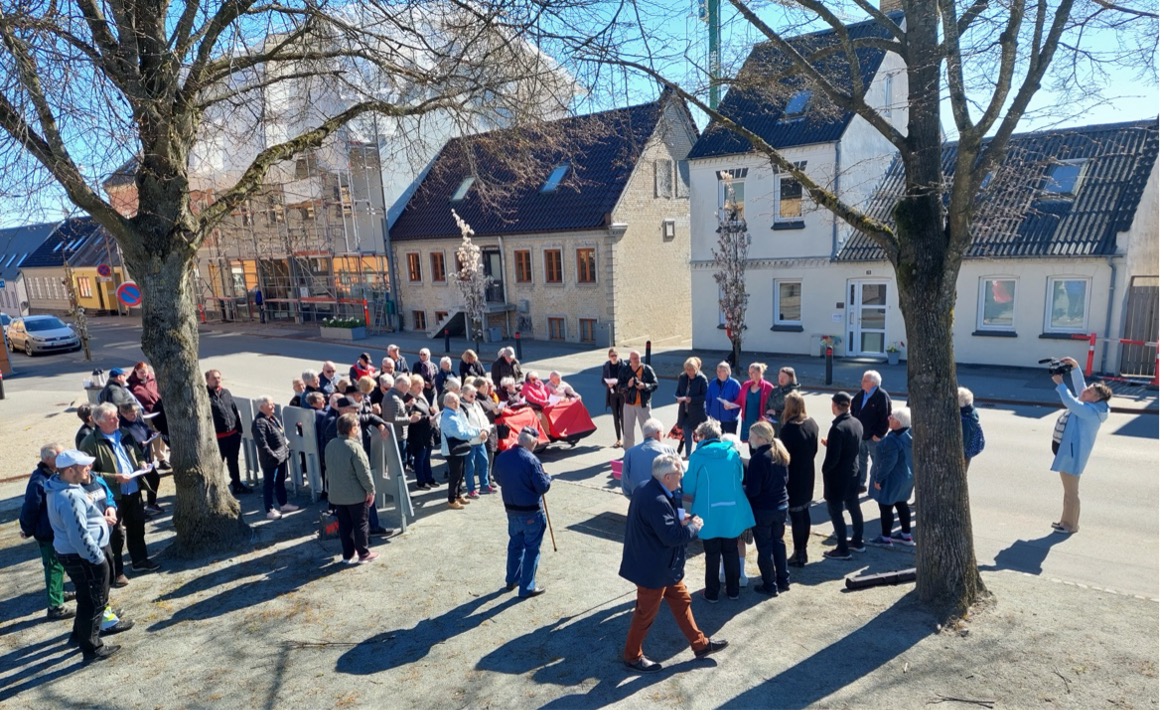


Duo management in practice: How Hvidovre Municipality strengthens cooperation
How to create cross-sector leadership without changing the structure? In Hvidovre Municipality, management is experimenting with duo management. Gain insight into their experiences, a 3-step model of collaboration and practical advice on succeeding in duo management.
Most municipalities are concerned with ensuring the cross-sector needs of citizens. Hvidovre Municipality has chosen an experimental approach with room for variation and development over time by creating their version of the management approach duo management.
Duo management (or shared management) is a form of management in which two people share responsibility for the management of a department, organization, or project. Instead of one manager who has overall responsibility, two people work closely together to make decisions, allocate tasks and manage employees.
As Centre Manager for Children and Families Hannah Ilima Wilson and Centre Manager for School and Education Ole Møller Laursen formulate it:
“We get an outside look that contributes to something good that we don't have ourselves. We get the disruption apart — and yank in each other's leaders and create legitimacy about joint actions.”
The purpose of duo management is to create a better framework for cross-sectoral management so that the municipality's different disciplines can collaborate more effectively on the complex needs of citizens. The Executive Board and the Management Group have jointly developed this strategy to strengthen holistic management with a focus on shared responsibility. Over the past year, the approach has been developed, tested and adapted into practice
As municipal director Jakob Thune elaborates:
“Leadership is characterized by ingrained and different habits about how to work together. So we're changing the culture of how leaders work more closely together.”
Duo management in Hvidovre: A step-by-step path to stronger cooperation
Hvidovre Municipality has developed a 3-step model around the degree of duo management, where the degree of cooperation and joint responsibility is increasing. That is, the first step on the development ladder is to work with 'interdisciplinary management' based on, for example, the core tasks of two centres, where there are interdisciplinary intersectional areas.
In Hvidovre, the elderly area and the cultural and leisure area have cultivated collaboration across sectors through concrete and shorter collaborations on volunteerism and communities for older citizens in collaboration with the municipality's association actors, for example, the development of a Senior-Friendly City with a focus on how the city's spaces can be decorated so that they promote joy of life, prevent loneliness and strengthen togetherness across generations.
Next step on the ladder is 'mate management', in which work is carried out with an expanded view of the core task and the construction of a continuous culture of involvement of each other at several levels of management and employees on both operations and development. A mindset where focus on the 'common' citizens and tasks is cultivated, so that the joint task solution and cross-sector coordination are increased.
The internal secretariat functions at City Hall have also worked to strengthen cross-sectoral cooperation and to improve coordination. For example, a new management model has been experimented with at the Centre for Politics, and trial actions have been piloted across the three central staffs around the budget process and the reception of a new local council.
Finally, the third step on the ladder is 'duo and trio management', where the co-creation approach is at the centre, with emphasis on two or three centres co-creating both the operation and development of their common core task. Co-creation is characterised by open and early cooperation in many phases of the core task — and thus not primarily in selected development projects. The co-creation of finances and resources increases commitment and creates an increased focus on intersectional areas, including citizens, and investments in multidisciplinary prevention.
In the area of children and schools in Hvidovre Municipality, Hannah Ilima Wilson and Ole Møller Laursen work closely together on a common approach to children, young people, education and families. The two areas have moved physically close to each other, they hold a joint leadership seminar, a special leadership forum has been established, day services have been established and the school area has developed a common vision for children and the area is on a children and young people policy that will create schools for all through inclusive learning environments. As Hannah and Ole say:
“We must succeed together with the child and the family, instead of giving others the responsibility. Employees and managers need to experience that they are not alone and that we have their backs if things are difficult. We need to constantly be in an organizational dialogue with different lenses, so we make sure that we are lubricating the important gaps.”
“You have to let go of this one with the fact that it's 'my'. Hannah gets to interfere a lot in what used to be a school chap territory. We focus on how we prepare children for school life in daycare and work as a community.”
However, the two centres remain two formal organisational units and have not merged as a common legal entity. In general, it has been a managerial desire, both from the administration and the political level of Hvidovre Municipality, to strengthen the culture of cooperation and the multidisciplinary view of citizens' needs in practice, without making formal organizational changes by merging units and reducing the number of bosses. Although Ole and Hannah's fields are not formally merged in relation to law and economics, they think of economics crosswise:
“We are two bosses who, together with the top management, think highly of economics and see the big picture for both the strategic direction and the economic foundation. We help create meaning in a community dialogue about what the universal day care and school area should do for all children.”

More articles
We write articles that can help top managers, boards, employees, citizens and business actors to succeed better - both together and separately.



Get the latest news on strategy implementation
If you want to keep up with the latest trends and developments in strategy realization, our LinkedIn page is the right place for you.
Visit us on LinkedIn